No products in the cart.
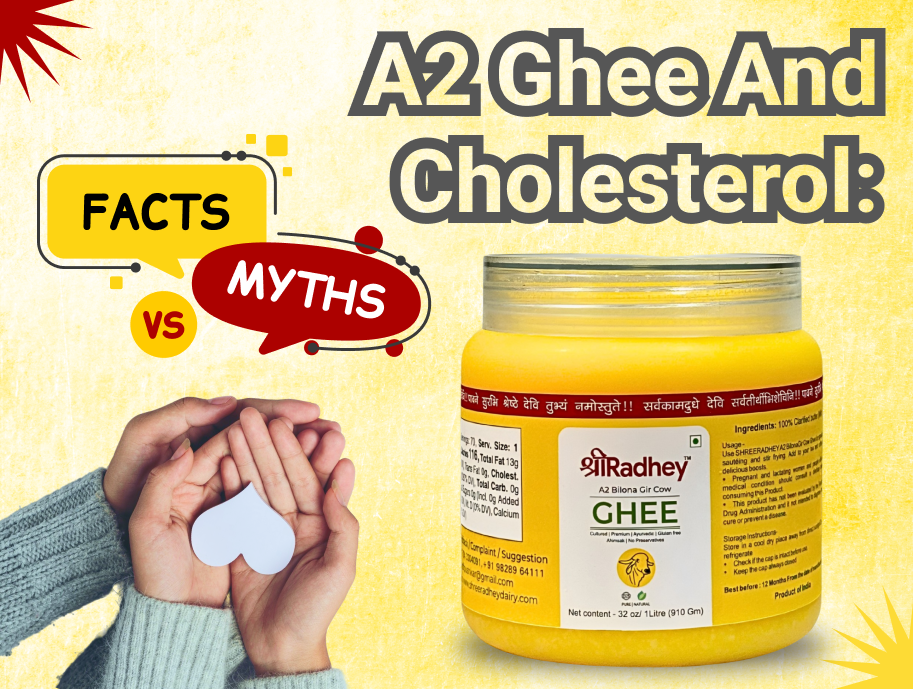
A2 ghee has found its place in the contemporary kitchens, particularly among the health-conscious people who are reverted to traditional and nutritious foods. Nonetheless, the relationship between ghee and cholesterol confuses many individuals. Is it healthy or is it something that can be dangerous to the heart? Myths vs. Facts: Let us find out and also answer a frequently asked question: Can ghee raise cholesterol?
Impact of A2 Ghee on Cholesterol Levels: Myths Vs. Facts
Myth 1: Ghee Increases Bad Cholesterol and Is Bad for the Heart
The question about whether ghee raises cholesterol is one of the most widespread questions. The fact is: ghee is good for cholesterol- but only when pure and when taken in the correct amount. It contains saturated fats, but at the same time, A2 ghee has conjugated linoleic acid (CLA) and butyric acid, which have been shown to maintain healthy cholesterol levels.
Instead of raising LDL (bad cholesterol), research indicates that when used in small quantities to manage cholesterol levels, ghee may actually enable one to raise HDL (good cholesterol) which is heart-protective.
Fact: A2 Ghee in Moderate Quantities Can Support Heart Health
Actually, according to ancient Ayurvedic literature, ghee is a “sattvic” food, which boosts immunity, aids digestion and nourishes the body and mind.
The quality of ghee and its purity is important. The type of A2 ghee used, without any additives, produced by grass-fed cow milk, will also make a massive difference in its impact on your health.
And this means that when it comes to the question of whether ghee is good or bad for cholesterol, the answer is actually yes, as long as it is A2 ghee and as long as it is consumed as part of a balanced diet.
Read: How Desi Cow Ghee is Good for a Healthy Heart
Myth 2: All Fats Are Bad for Cholesterol
Fats are not all bad. Actually, your body requires good fats in order to perform well. Pure A2 Cow Ghee contains short and medium chain fatty acids that are readily absorbed and used as energy. These natural fats are not stored in the body or clog arteries like trans fats or refined oils do.
So when replacing the processed oils with ghee to manage cholesterol levels, it may be a clever and more sensible decision.
Fact: Ghee Has Been Used in Ayurvedic Medicine for Centuries
According to Ayurveda, ghee is a “sattvic” (pure) food and it is vitality-inducing, digestive, and clarifying to the mind. It is incorporated a lot in therapeutic formulas to convey herbs and enhance assimilation. The long-standing wisdom recommends it not only as an internal use but also in the health of the skin and joints.
Myth 3: You Should Avoid Ghee If You Have High Cholesterol
Although individuals with preexisting cholesterol concerns ought to never neglect professional guidance, in small quantities, refined oils can be swapped with pure, grass-fed A2 ghee, which is a healthier option. It is all about portion control. High-quality A2 ghee in your daily meals can be one teaspoon a day that will nourish you without increasing cholesterol levels.
Fact: Quality Matters More Than Quantity
The origin of your ghee is really important. Commercially produced ghee is usually made with additives or prepared using cream instead of curd. When buying A2 ghee, always seek the one that is prepared using the traditional Bilona method as it is more nutrient-dense and contains the natural goodness of desi cow milk.
Myth 4: Low-Fat or Fat-Free Diets Are Always Better for Cholesterol
Low-fat diets were heart-healthy promoted over years. However, recent studies indicate that good fats are necessary to absorb fat-soluble vitamins (A, D, E, and K), to balance hormones, and to support brain power. Cutting out all fats in your diet may hamper your metabolic rate and you end up lacking essential nutrients. More important is the quality of fat, not only the quantity.
Fact: Traditional Diets That Include Ghee Show Lower Incidence of Heart Disease
Organic A2 Cow Ghee has been used by many cultures, particularly in India, over the generations and in most cases, without the current levels of heart diseases associated with lifestyles. This drives toward the notion that ghee is not the villain- instead, it is more likely the onset of processed foods, trans fats, and inactive lifestyles. The use of traditional diets involving the moderate use of ghee, fresh foods, and exercise improved heart health.
Read: Power of A2 Ghee in Maintaining Cholesterol Levels in Winter
Tips for Including A2 Ghee in a Heart-Healthy Diet
- Use 1–2 teaspoons daily in cooking, preferably for sautéing or tempering spices.
- Replace processed spreads with a small amount of A2 ghee on toast or rotis.
- Mix a spoonful into warm dal, khichdi, or rice for better digestion and taste.
- Avoid overusing it with fried or calorie-dense meals—balance is key.
Final Thoughts: The Role of Ghee in Your Diet
The myth that ghee is harmful for cholesterol is slowly fading—and for good reason. Research and tradition both indicate that ghee is good for cholesterol when it’s pure A2 ghee and used in moderation. So instead of eliminating ghee, learn to include it mindfully in your meals. Click to buy the best A2 cow ghee in India.



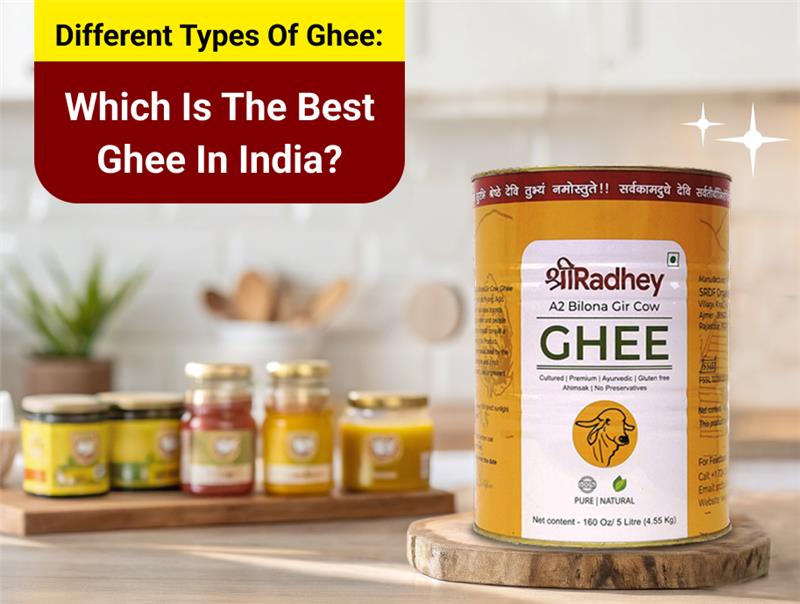 Different Types of Ghee: Which is the Best Ghee in India?
Different Types of Ghee: Which is the Best Ghee in India?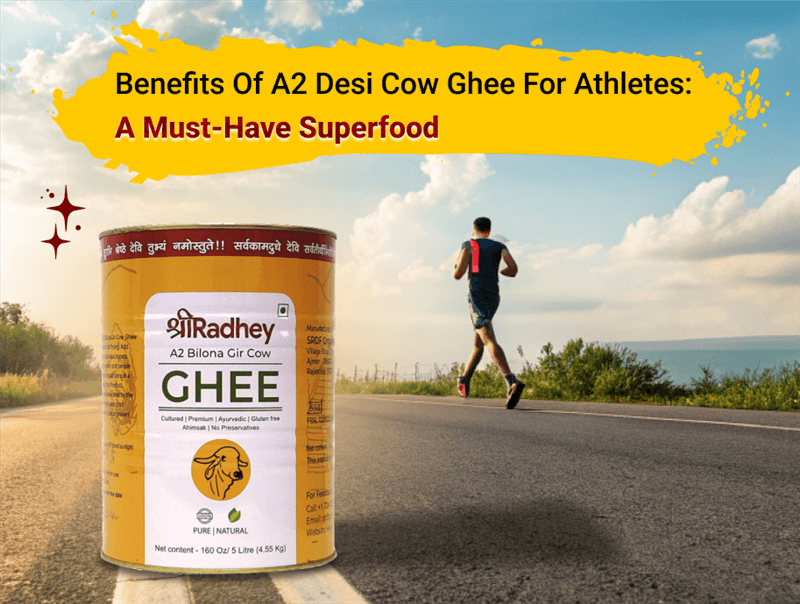 Benefits of A2 Desi Cow Ghee for Athletes: A Must-Have Superfood
Benefits of A2 Desi Cow Ghee for Athletes: A Must-Have Superfood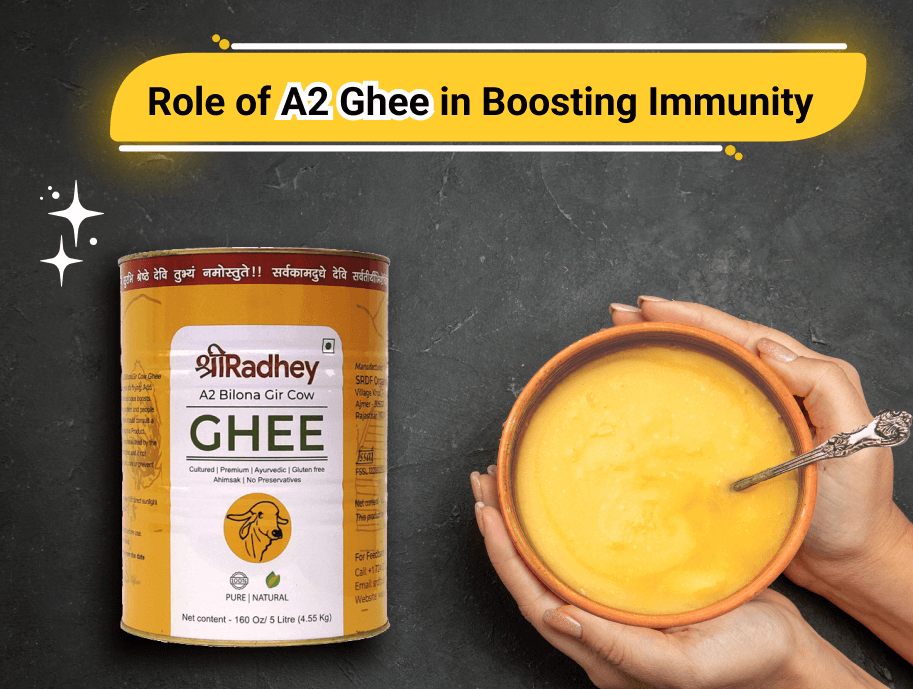 Role of A2 Ghee in Boosting Immunity
Role of A2 Ghee in Boosting Immunity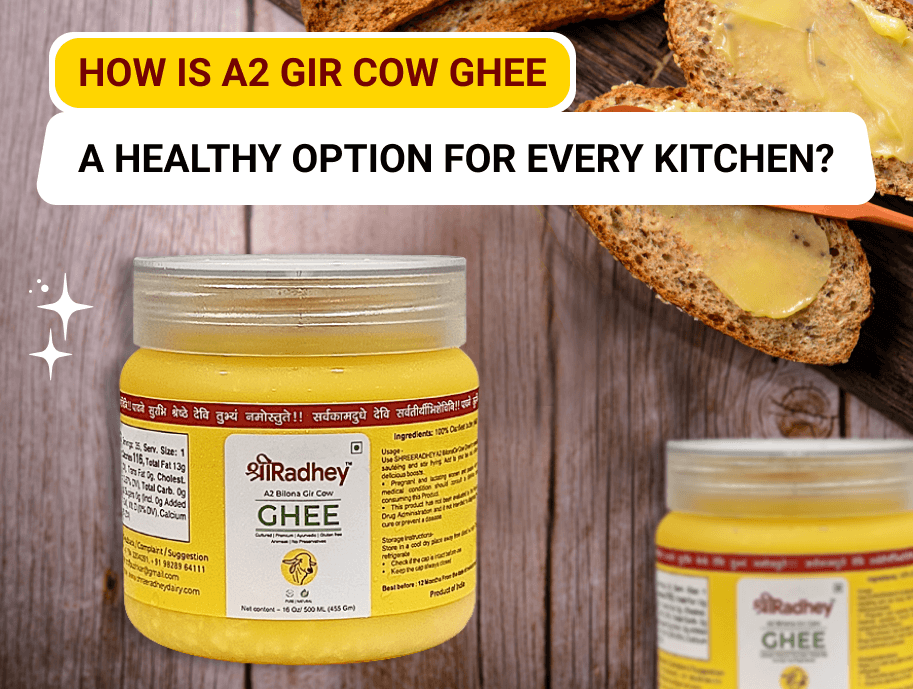 How is A2 Gir Cow Ghee a Healthy Option For Every Kitchen?
How is A2 Gir Cow Ghee a Healthy Option For Every Kitchen?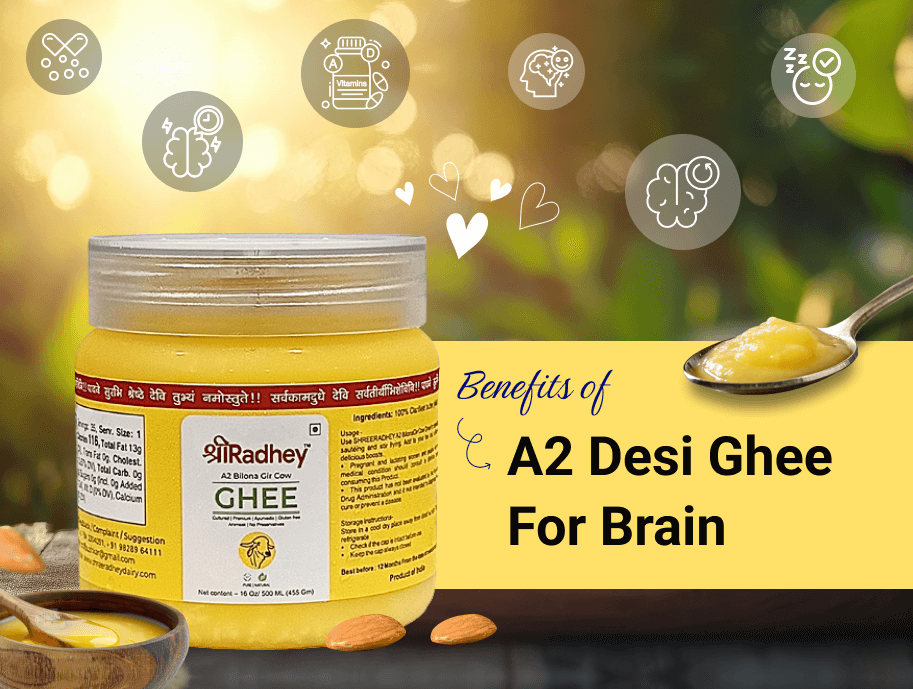 Benefits of A2 Desi Ghee For Brain
Benefits of A2 Desi Ghee For Brain